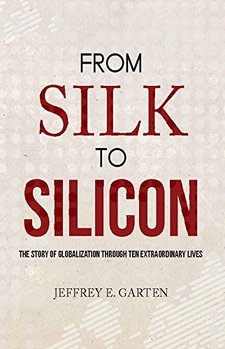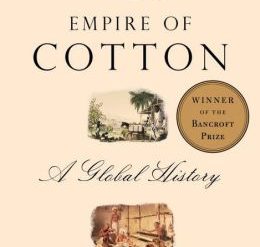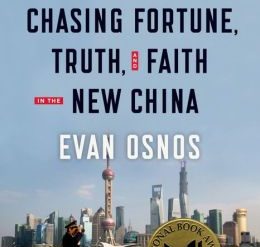
Scholars argue about when globalization first took firm hold in the world’s economy. But most agree that the entry of the Old World into the affairs of the New was the pivotal event. Before then, before the voyages of Christopher Columbus and what came to be called the Columbian Exchange, what had come before was merely prelude. Not so Jeffrey Garten. In his ambitious story of globalization, From Silk to Silicon, Garten identifies the expansion of the Mongol Empire in the thirteenth century as the beginning. He makes an impressive case, but it’s not fully convincing.
Garten tells the history of globalization through ten engaging biographical sketches. He includes some of the best-known actors in world history (Genghis Khan, Prince Henry the Navigator, Deng Xiaoping) and others whose names are much less familiar to contemporary readers (Robert Clive, Cyrus Field, Jean Monnet) as well as a handful whose names may be well known today but whose contributions to the history of globalization might be a mystery (Mayer Amschel Rothschild, John D. Rockefeller, Margaret Thatcher, Andrew Grove). Garten’s choices are a decidedly mixed bag, some of whom raise as many questions as they answer.
From Silk to Silicon: The Story of Globalization Through Ten Extraordinary Lives by Jeffrey E. Garten (2017) 467 pages @@@@ (4 out of 5)
Ten mini-biographies, but are all well chosen?
Unquestionably, given the facts Garten reports about Genghis Khan’s life, the man was one of the most consequential figures in world history. And he certainly knit together the economies of much of Asia and Eastern Europe in a way that lasted for two centuries. But that represented internationalization, not globalization. True globalization—a global phenomenon—began only when the Spanish and Portuguese connected the economies of the Old World with the New.
Some of Garten’s other choices are obvious:
- Prince Henry the Navigator, far more than Columbus, was instrumental in driving the European push across the ocean toward the rest of the world.
- Robert Clive was the central figure in Britain’s gaining dominance over other European powers in the Indian Ocean.
- Mayer Amschel Rothschild undoubtedly was pivotal in driving the development of banking as a global industry.
- John D. Rockefeller built the oil business into the world’s largest industry—and, as Garten emphasizes, also invented global philanthropy.
- Jean Monnet’s life work led to the creation of the European Union and the European Common Market.
- Andrew Grove may or may not be identified by later historians as the central figure in driving the monumental changes wrought by Silicon Valley. Garten does, though, and Grove is arguably a good choice for having built the semiconductor industry that is central to the high-tech revolution now dominating our lives.
- Deng Xiaoping brought the world’s largest nation, and one of the poorest, into the global economy.
Two dubious choices for the story of globalization
However, Garten also includes two individuals whose connection to the growth of globalization seems mysterious:
- Without question, Cyrus Field was instrumental in launching the effort that led to the use of undersea cables to communicate across the Atlantic. But in the end he failed. It was others who built that industry.
- No doubt, Margaret Thatcher was primarily responsible for the reversal of the trend toward state intervention in the British economy. And in the process she influenced many other world leaders, including Ronald Reagan. But it could just as easily be argued that the approach Thatcher took—what later came to be called neoliberal—has damaged far more lives than it helped and is responsible for the large and growing gap between rich and poor. In no way does Thatcher deserve to be celebrated as a champion of globalization.
Despite its flaws, including a few historical errors, From Silk to Silicon is well worth reading for Garten’s superb short biographies of the ten important people featured in its pages.
About the author
Like so many other elite Ivy League academics, Jeffrey E. Garten (1946-) has cycled seamlessly back and forth among high-level government posts, the private sector, and academia. He served in the administrations of Richard Nixon, Gerald Ford, Jimmy Carter, and Bill Clinton. Garten is the Dean Emeritus of the Yale School of Management, where he served as Dean from 1996 to 2005. His effort to tell the story of globalization is his sixth book.
For further reading
You might also enjoy:
- My 10 favorite books about business history (plus dozens of others)
- 20 top nonfiction books about history plus more than 80 other good ones
- Great biographies I’ve reviewed: my 10 favorites
- Gaining a global perspective on the world around us
And you can always find my most popular reviews, and the most recent ones, plus a guide to this whole site, on the Home Page.

























